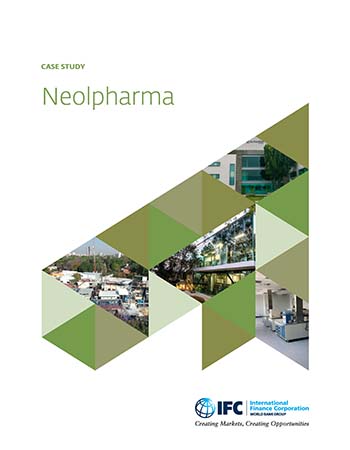In the pharmaceutical industry around the world, a noteworthy kind of company is stepping onto the global stage. These are energetic, innovative family businesses launched in emerging economies. They often begin as manufacturers of low-cost medications and build their capabilities until they can expand beyond their home countries. One such company, well known in Mexico, is Grupo Neolpharma.
It began as a maker of low-cost, generic medications for central nervous system (CNS) ailments, such as Parkinson’s disease, epilepsy, migraines, schizophrenia, depression, and anxiety. Its primary customer at first was Mexico’s public health system, which gave it a solid revenue stream. Then it branched out into different forms of manufacturing, including the manufacturing of active pharmaceutical ingredients (APIs) used by other pharmaceutical companies. Now Neolpharma is competing through process and product innovation and geographic expansion.
Companies like this tend to practice what former General Electric CEO Jack Welch once called “planful opportunism.” They follow long-term goals in a determined but flexible way, and take advantage of chances to grow wherever they find them. Another such company is Granules of India, whose IFC case study told the story of expansion into U.S. manufacturing. Neolpharma is on a similar growth path, with a more multifaceted approach. It is expanding into other countries, upgrading its manufacturing processes, innovating its practices, introducing new medications, and potentially moving into providing vaccines for COVID-19 and other widespread diseases.
Timeline
The company’s financing with IFC, which took place in 2021 as a $30 million loan package including $15 million concessional financing from the Canada-IFC Blended Climate Finance Program, is structured to build a long-term working relationship. The $30 million investment includes a climate change mitigation component, setting a best-practice standard for the Mexican pharmaceutical market. There were facilities’ projects involved, such as a new plant for making injectable products like vaccines. But there was also a recognition of the need for sustainable, flexible financing. For example, Neolpharma is partnering with local research institutions such as Autonomous University of Queretaro to explore possibilities in patenting new products. It is also developing forms of industrial manufacturing with a low carbon footprint. Both of these endeavors, and others, could require sudden needs for financing that are not always possible to foresee. Both Neolpharma and IFC are interested in demonstrating that a small, family-owned company can become technologically sophisticated enough to compete meaningfully in the complex global life sciences industry.
Mexico is considered an upper-middle-income country, but it has wide disparities in standards of living, an aging population, and an increasing incidence of chronic diseases. This has motivated Neolpharma to build a business model focused on the development and manufacturing of high-quality, low-cost medicines for the low- to middle-income population. The company is engaged in different segments across the pharma value chain, with companies such as NeolSyM for the production of APIs, and Neolpharma, Psicofarma and Alpharma for the manufacturing of finished formulations in high-specialty areas such as the central nervous system and cardiology. With the exception of BioGenTec, each segment has its own manufacturing facilities that are integrated together in common management. The family that owns Neolpharma, the Ocampos of Mexico City, is now entering its second generation of executive leadership. Efrén Ocampo López acquired the company in 1991 when it was still a small producer of mental health-oriented prescription products. He has overseen an expansion to a US$200 million company with more than 2,400 employees. His three children are executives in the organization.
The Ocampos share a dedication to innovation and to the ongoing discipline required in fostering patient safety coupled with a certain modesty when it comes to marketing and promotion. Though the Neolpharma companies devote much of their resources to various forms of social responsibility, they do not turn it into a sales pitch. They run a website Contigo en Mente, or “With You in Mind,” that offers general advice on a wide range of health issues, such as migraines, anxiety, insomnia, and depression. A second sponsored site, called “Mentalizarte,” is produced by the Ramón de la Fuente Muñiz National Institute of Psychiatry. Illustrated with cartoons and friendly to adolescents, it addresses serious mental health-related challenges people face, such as managing eating disorders or being locked down with a family during Covid-19.
The goal of both sites is to reduce patient risk by making available better information about conditions and treatments, and to provide necessary mental health resources. This type of social responsibility fits into the company’s broader goal of growing an international, sustainable business, while contributing meaningfully to people’s abilities to survive and thrive despite the stresses of this very challenging time in history.
Lessons
Develop practices and capabilities that can carry you forward indefinitely.
Compete not just on price, but on the reliability, safety, and efficacy of your products.
Grow through careful R&D investment and well-coordinated alliances.
Focus on the welfare of your customers and patients.
Use the family culture’s informality and can-do attitude to set a proactive pace of work.


